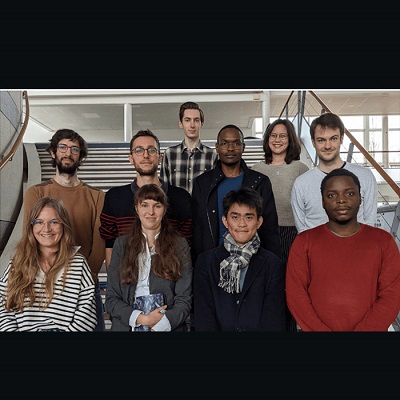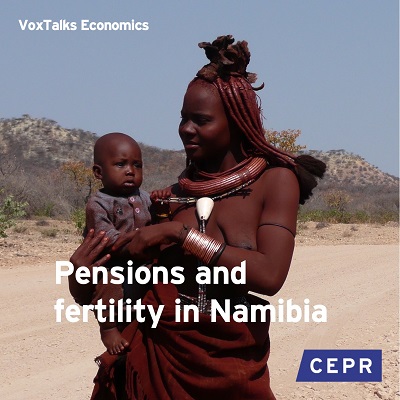Béatrice Cherrier was awarded the CNRS Bronze Medal 2021
The Bronze Medal recognizes the first works of researchers who are specialists in their field. This distinction represents an encouragement from the CNRS to pursue research that is already well underway and fruitful.
Béatrice Cherrier is an historian of economics, a CNRS researcher, affiliated with CREST, and an associate professor at École Polytechnique.
Through a comparative analysis of the lives and work of Gunnar Myrdal, Milton Friedman and Jacob Marschak, her dissertation, conceived as an inquiry, studied the coherence between the science and politics of economists.
Her overarching research agenda is to understand the perceived rise of applied economics since the 1970s. In collaboration with other researchers, she is investigating how the rise of computers has changed the practices of economists, how economists individual visions combined in the development of the MIT economics department.
Through an INET grant, Beatrice Cherrier was able to set up her project, which aims to compare the dynamics of various applied fields.
In more recent work, she is studying the rise of applied economics, such as the rise of empirical work in urban economics, public economics, and macro econometric modeling, beginning in the mid-1960s. She has also studied changes in the classification of economic publications over time.
« While macroeconomics largely shapes the public image of economists, I believe that their methods, institutional ecologies and incentive systems are increasingly affected by the rise of mechanism and market design. I’m trying to get a clearer picture of this trend. » Béatrice Cherrier
She is currently working on the applied models economists developed in central banks, in particular at the Bank of England. She also studying the effects of the rise of applied economics on the status and representation of women in economics, and the credit they have received for their empirical work since World War II.
Médaille de bronze:
https://www.iledefrance-gif.cnrs.fr/fr/personne/beatrice-cherrier
Site personnel:
https://beatricecherrier.wordpress.com/about/
La Presse en parle:
https://www.franceculture.fr/personne/beatrice-cherrier
PhD Day 2021: le séminaire des doctorants ENSAI
Le 18 novembre 2021, les doctorants de l’ENSAI ont présenté leurs travaux
Conférence “Évaluation des politiques publiques 2021”
Avec la participation de Francis Kramarz dans le Comité de programme. Événement co-organisé la Direction Générale du Trésor et l’AFSE le 9 décembre 2021 de 9h à 18h30
Assurer la décroissance énergétique sans altérer la croissance économique: un défi
Une tribune de Marc Campi et Guillaume Flament – 25 novembre 2021
Sortie du second rapport du comité scientifique de l’évaluation du Plan d’investissement dans les compétences
Deuxième rapport du comité scientifique du Plan d’investissement dans les compétences, dont Roland Rathelot est un des vice-présidents
La presse en parle:
Les Echos – 25 novembre 2021:
https://www.lesechos.fr/economie-france/social/formation-les-resultats-encore-incertains-du-grand-plan-competences-demmanuel-macron-1367101
Le Figaro – 25 novembre 2021:
https://www.lefigaro.fr/social/formation-les-resultats-tenus-du-plan-du-gouvernement-20211125
Le Monde – 26 novembre 2021:
https://www.lemonde.fr/politique/article/2021/11/26/le-bilan-mitige-du-plan-de-formation-des-chomeurs_6103707_823448.html
Note IPP n°76: Discrimination à l’embauche
Discrimination à l’embauche des personnes d’origine supposée maghrébine : quels enseignements d’une grande étude par testing?
Novembre 2021
Présentation:
De nombreuses études montrent que les Français issus de l’immigration maghrébine se heurtent à des difficultés importantes sur le marché du travail, et ce dès la première étape de recrutement. Les résultats d’un testing récent et de grande ampleur le confirment. La discrimination à l’embauche selon l’origine supposée reste élevée et un élément majeur du marché du travail en France. En moyenne, à qualité comparable, les candidatures dont l’identité suggère une origine maghrébine ont 31,5 % de chances de moins d’être contactées par les recruteurs que celles portant un prénom et nom d’origine française. Si les discriminations liées à l’origine supposée sont fortes et persistantes, elles sont plus faibles, sans s’effacer, parmi les salariés les plus qualifiés. Ces résultats ne varient pas sensiblement entre les femmes et les hommes.*
Lien vers la note:
La presse en parle:
Tribune:
Libération – 24 novembre 2021:
https://www.liberation.fr/idees-et-debats/tribunes/les-discriminations-a-lembauche-minent-la-cohesion-sociale-20211124_SRJ2GJKMS5GGZOEJAE5FVKWZIA
Presse:
Le Monde – 24 novembre 2021:
https://www.lemonde.fr/societe/article/2021/11/24/discriminations-a-l-embauche-un-phenomene-qui-reste-generalise-et-persistant_6103458_3224.html
Le Point – 24 novembre 2021:
https://www.lepoint.fr/societe/les-maghrebins-victimes-d-une-forte-discrimination-a-l-embauche-24-11-2021-2453653_23.php
Les Dernières Nouvelles d’Alsace – 25 novembre 2021:
https://www.dna.fr/economie/2021/11/25/la-discrimination-a-l-embauche-selon-l-origine-toujours-elevee-en-france
Pensions and fertility in Namibia
An interview with Pauline Rossi by Tim Phillips in VoxTalks Economics – November 19, 2021 – 16 mn
NeurIPS 2021 Conference
Nine research papers coauthored by CREST members accepted at NeurIPS 2021 Conference:
https://www.hi-paris.fr/2021/12/03/hi-paris-at-neurips-2021/
– Stochastic Online Linear Regression: the Forward Algorithm to Replace Ridge
Reda Ouhamma · Odalric-Ambrym Maillard · Vianney Perchet
– Decentralized Learning in Online Queuing Systems
Flore Sentenac · Etienne Boursier · Vianney Perchet
– Online Matching in Sparse Random Graphs: Non-Asymptotic Performances of Greedy Algorithm
Nathan Noiry · Vianney Perchet · Flore Sentenac
– Online Sign Identification: Minimization of the Number of Errors in Thresholding Bandits
Reda Ouhamma · Rémy Degenne · Vianney Perchet · Pierre Gaillard
– Making the most of your day: online learning for optimal allocation of time
Etienne Boursier · Tristan Garrec · Vianney Perchet · Marco Scarsini
– A New Theoretical Framework for Fast and Accurate Online Decision-Making
Nicolò Cesa-Bianchi · Tom Cesari · Yishay Mansour · Vianney Perchet
– Local Differential Privacy for Regret Minimization in Reinforcement Learning
Evrard Garcelon · Vianney Perchet · Ciara Pike-Burke · Matteo Pirotta
– Distributed Zero-Order Optimization under Adversarial Noise
Arya Akhavanfoomani · Massimiliano Pontil · Alexandre Tsybakov
– Locally differentially private estimation of functionals of discrete distributions
Cristina Butucea · Yann Issartel
Finance: no more middlemen?
An interview with Julien Prat in Polytechnique Insights – November 10th, 2021
Market Entry, Fighting Brands, and Tacit Collusion
A paper published in the American Economic Review, co-authored by Yutec Sun, Marc Bourreau, Frank Verboven










